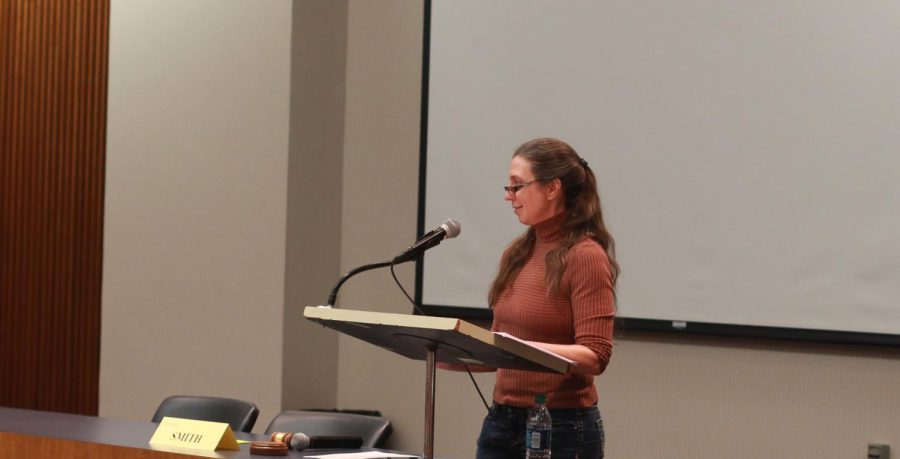Faculty Senate OKs shortening spring semester to allow fall break
Faculty Senate opted to shorten the spring semester by three days in order to accommodate the Fall 2018 break at its meeting Monday.
This comes after months of deliberation between several options to alter the academic calendar. Spring semester would end on a Tuesday, rather than a Sunday.
Provost Todd Diacon, speaking on behalf of absent Melody Tankersley, senior associate provost and dean of Graduate Studies, recommended this option as the best choice to senators.
Though fall break — a two-day rest on Thursday and Friday in week eight of the semester — is set for the upcoming semester, the change to spring won’t happen until 2020.
Following Diacon’s comments on the push for trimming spring semester, the Governance Chambers remained mostly hushed — quite different than earlier, more drawn-out talks on fall break. There were, however, two comments from the crowd of senators.
Faculty Senate member Jeffrey Child asked why the option to eliminate intersession, brought to the table during last month’s meeting, was unfavorable.
Fellow member Darci Kracht said in the previous meeting she thought dropping intersession was a good idea. However, after hearing from departments who rely heavily on intersession for their seven-week terms, her opinion changed.
“After there was an extensive discussion both at Faculty Senate and at EPC (Educational Policies Council), and nursing and, I think, technology, there are a few departments that it would really harm their programs,” Kracht said. “So I came around to being in favor of the spring proposal for that reason. … We have to look at the programs that really will suffer.”
Faculty Senate member Robert Twieg said fall break was initiated because students were stressed out during the eighth week of the semester, but he wants to spend more time analyzing the actual source of stress.
“I’m wondering in the future if we’re ever gonna know if what we’ve gone through here is gonna pay off or has had an impact on this perceived stress, which was ill-defined from the onset,” Twieg said. “What’s been missing in our discussions is, ‘What was the source of this stress for the students?’ Shouldn’t we be dealing with this stress from where it’s created rather than after-the-fact, putting a Band-aid on it by giving students two days of extra time?”
Final approval of the calendar will come at the Board of Trustees’ meeting June 6.
Valerie Royzman is an administration reporter. Contact her at [email protected].



